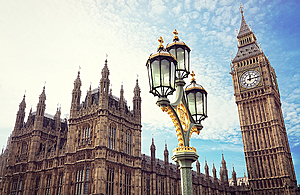The Environment Agency is urging residents and owners of land and property across the North East to be extra vigilant in the protection of their property, and also checking out the credentials of any independent waste carriers to avoid becoming victims of waste crime during the continued Coronavirus lockdown.
Don’t get dumped on as it could cost you! If it sounds too good to be true – it probably is.
These uncertain times are the perfect opportunity for criminals to take advantage of unsuspecting victims especially when householders are creating more refuse and sorting through unwanted items during the clearance of outhouses and garages.
That coupled with the recent temporary closure of most Household Waste and Recycling Centres has meant that people have been desperate to clear some much-needed space and remove their clutter. So it may be tempting to answer that advert on Facebook for someone to come and clear the waste – but be aware.
The annual economic impact of waste crime in England is an estimated at £604M. The Environment Agency is working hard to address this. Its specialist crime unit uses intelligence to track and prosecute organised crime gangs involved in illegal waste activity and to ensure any necessary action is taken against them.
David Edwardson, the Environment Agency’s Enforcement Leader for the North East, said:
Waste crime is something that not only affects the environment in which we live and work but it can be an awful experience for residents, landowners and businesses who fall victim to these acts of criminal activity.
This is why, as the regulator for the commercial waste industry, we are urging individuals, businesses and organisations to be cautious, extra vigilant and responsible with the management of their waste. This will prevent it getting into the hands of criminals – who cause damage and heartache to properties and the local economy.
Did you know that in a court of law it’s not only the waste carrier who can be prosecuted if waste is fly tipped? It’s expected that the customer knows the final destination of the waste [duty of care]. If you pass your waste to someone else to take away for you, you must first check they are registered with the Environment Agency.
There is a risk to landowners too. Waste criminals can target your land and property. They may offer you cash to store waste, promising to come back and remove it but don’t. Or they may dump the waste without your knowledge.
The threat to those land and property owners comes in various means from baled waste appearing unexpectedly through to people answering adverts on social media platforms placed by illegal unlicensed waste carriers promising to remove items for a one-off fee.
Large scale illegal dumping of waste is often co-ordinated through organised crime groups. These criminal groups approach property and landowners to lease warehouses, barns, open land, farms and private property. Lease agreements are put in place that appear to be legal and above board.
Organised crime groups then leave waste on land, where the clearance of the waste becomes the responsibility of the landowners, often at great expense. The criminals involved often provide false details to secure their lease agreements making them harder to trace and to recover costs from.
The Coronavirus is not an excuse for criminals to get away with operating illegally. The Environment Agency is still actively responding to reports of illegal activity and waste sites operating illegally during this pandemic.
Check out the Environment Agency’s operational update at www.gov.uk/government/news/environment-agency-operational-update-3-april-2020
David Edwardson continues:
We are working closely with our partners to deliver a programme of preventative measures to help protect individuals especially in these current times when criminals prey on people’s vulnerability.
You may even be committing an offence yourself by allowing waste to be stored on your land or in your property without the relevant permissions which could leave you liable to prosecution.
There are hundreds of commercial properties across the North East thought to be empty, all of which are potential targets for waste criminals.
Northumbria Police’s Designing Out Crime Officer, Sandra Killeen, said:
We all have to be accountable for responsibly disposing of our waste as it can have damaging effects on the environment and the economy.
We are working alongside our partners to ensure anyone linked to criminal activity and illegal disposing of waste sees the full consequences of their actions.
We are urging the public to remain vigilant and report anything suspicious.
James Copeland, Senior Environment & Land Use Adviser, said:
When accepting any material, especially waste onto farm, there are a number of waste regulations you must be aware of. Depositing unsuitable materials could leave you with an expensive clean-up costs or facing prosecution. There are a number of key checks and questions you need to ask when accepting waste and if in doubt, contact the competent authority for advice.
Everybody has a part to play to help solve the waste crime problem and make sure waste is managed responsibly. Anyone who sees waste crime taking place, or who has been a victim of illegal baled waste deposit is advised not to approach as these people can be dangerous. Report it by calling our incident hotline on 0800 80 70 60 or call Crimestoppers anonymously on 0800 555 111.
Also if people are paying for a company to take away waste from their property, then we would always advise them to check they are a registered waste carrier with the Environment Agency by visiting environment.data.gov.uk/public-register/view/search-waste-carriers-brokers .

